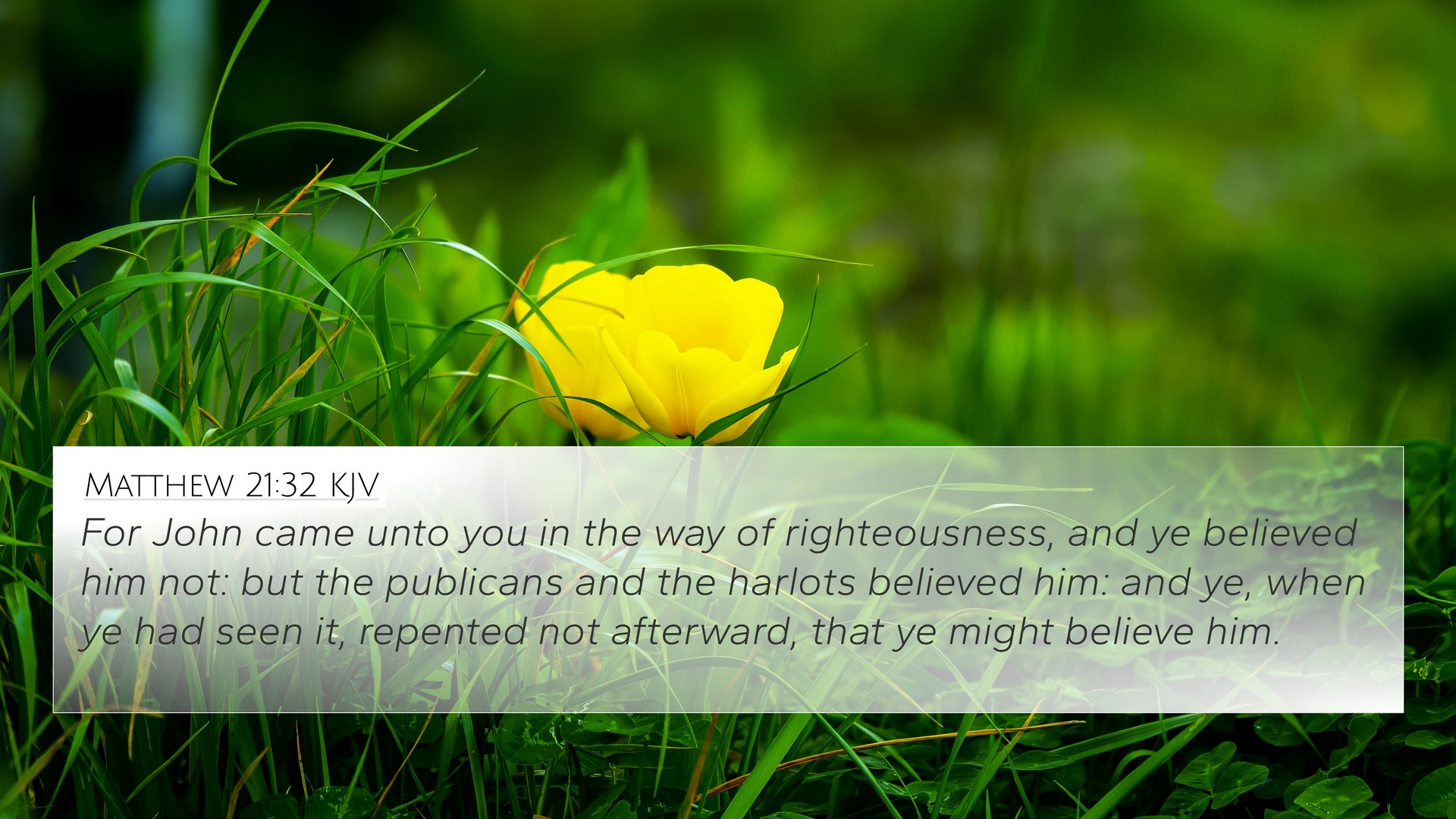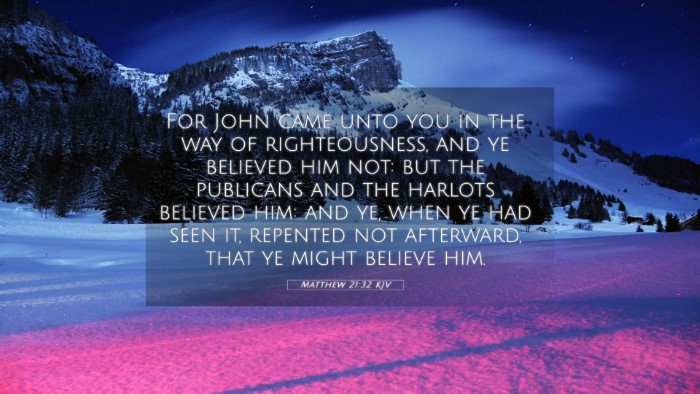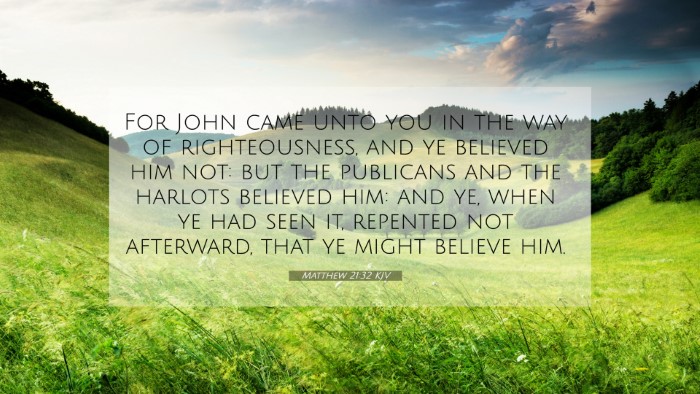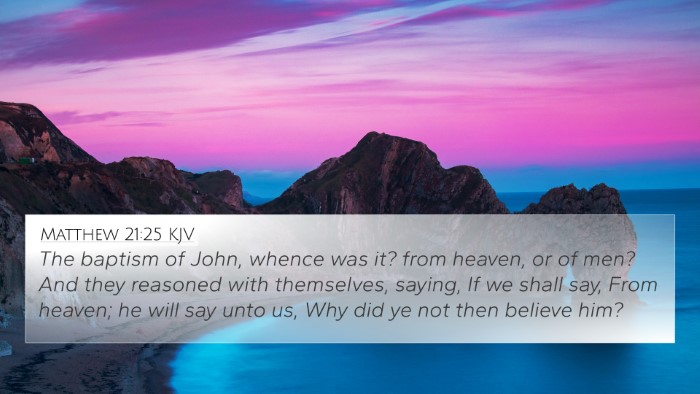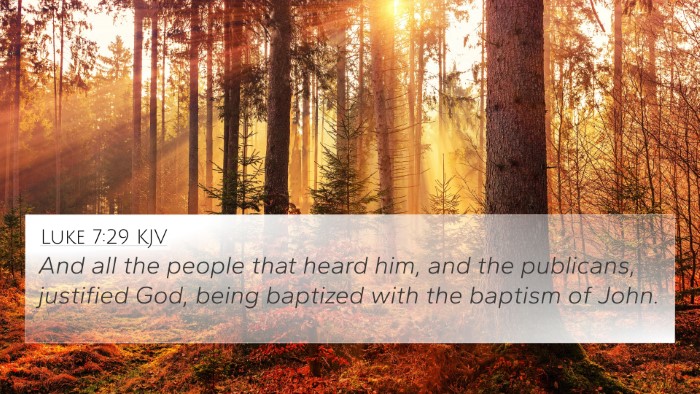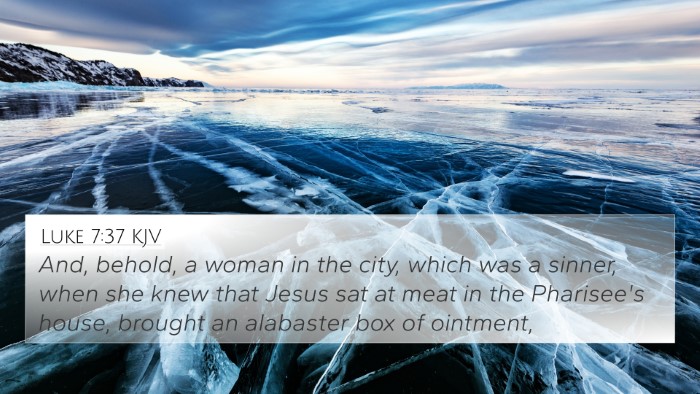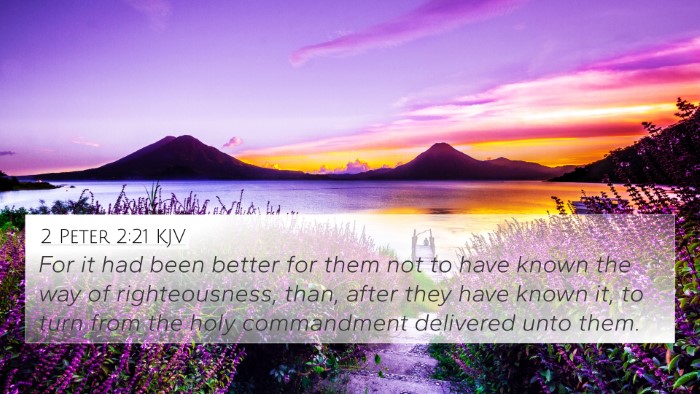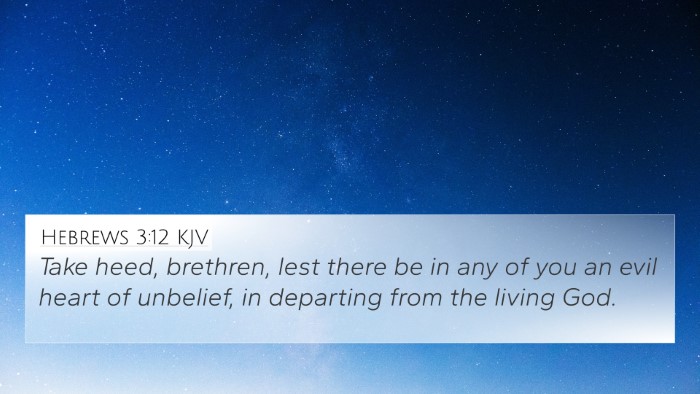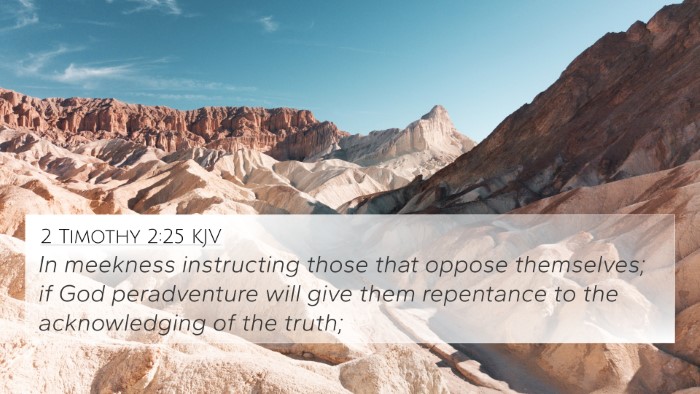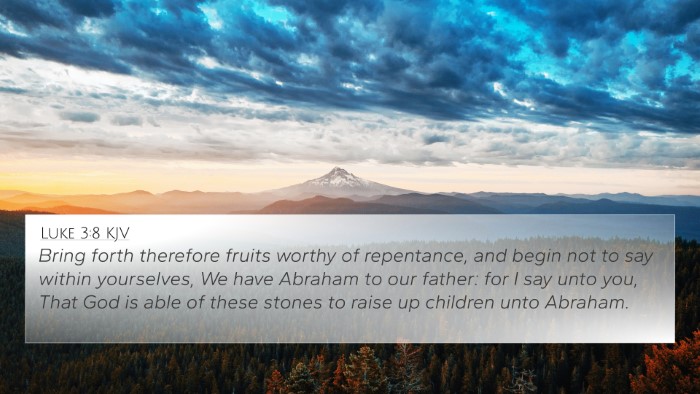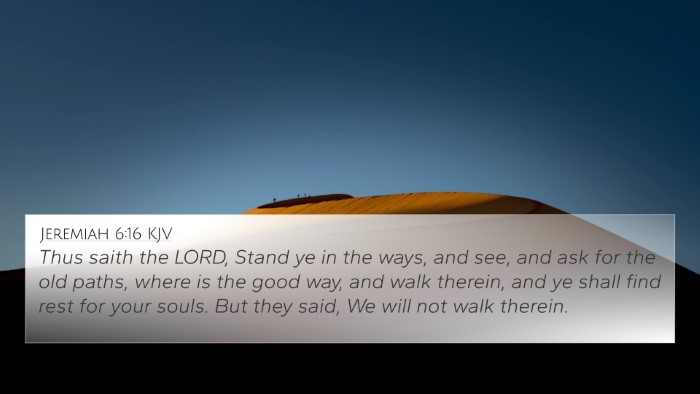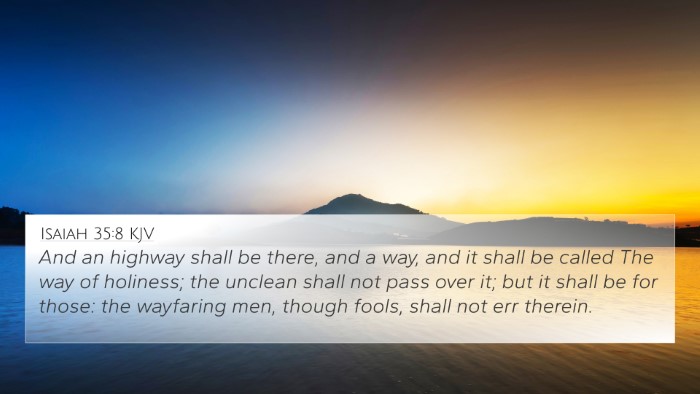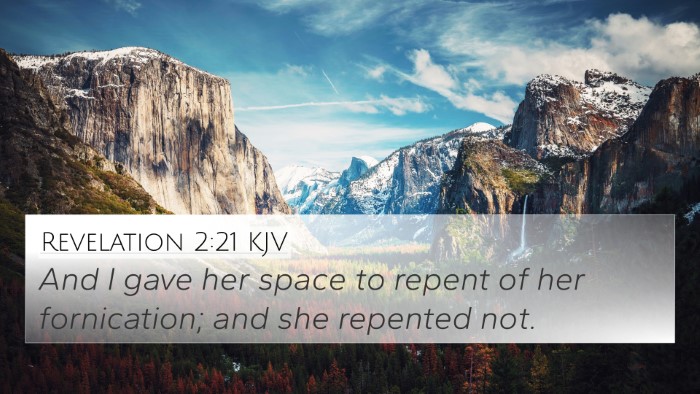Understanding Matthew 21:32
Matthew 21:32 states: "For John came to you in the way of righteousness, and you did not believe him; but the tax collectors and harlots believed him; and when you saw it, you did not afterward relent and believe him."
This verse provides a poignant insight into the acceptance and rejection of divine truth, particularly in relation to repentance and faith. It signifies a fundamental theme in the teachings of Jesus concerning the Kingdom of God and the criteria for entrance into it.
Summary of Meaning
The message in Matthew 21:32 highlights the contrast between the religious elite and the marginalized groups in society. The key observations include:
- John's Ministry: John the Baptist is presented as a herald of righteousness whose message was largely ignored by the powerful, yet embraced by those deemed sinners.
- Belief and Repentance: The response of tax collectors and harlots illustrates that faith and repentance are available to all, regardless of social status.
- Call to Action: The verse challenges the listeners to reconsider their own hearts; merely knowing God's word is insufficient without obedient response.
- Consequences of Rejection: The passage emphasizes that the consequence of denial can lead to a hardened heart that misses the opportunity to believe.
Public Domain Commentary Highlights
Matthew Henry
In Matthew Henry’s commentary, he emphasizes the grace shown to the sinners who repented and accepted John’s message. Henry points out that those who are expected to lead (the religious leaders) rejected God's call, bringing to light the gracious nature of God, willing to embrace even those regarded as outcasts.
Albert Barnes
Albert Barnes details the importance of acknowledging one's sinfulness and the open invitation to all who would believe. He underscores that the acknowledgment of one’s need for repentance is the first step towards faith. Barnes posits that the tax collectors and harlots serve as exemplars of true faith, contrasting with the prideful rejection exhibited by the Jewish leaders.
Adam Clarke
Adam Clarke provides a detailed analysis of the societal implications of the text. He notes that the acceptance of John’s ministry by infamous characters serves as a profound statement about the inclusivity of God’s grace. Clarke emphasizes the radical nature of Jesus' message that subverts societal norms concerning righteousness and worthiness.
Bible Cross References
This verse relates to several others throughout the Bible, illustrating its themes of repentance, faith, and divine mercy:
- Luke 3:12-13: Tax collectors came to John asking how they should repent.
- Luke 15:1-2: Jesus received sinners and ate with them.
- Matthew 9:10-12: Jesus calls Matthew, the tax collector, highlighting His mission to call the sinners.
- 1 Timothy 1:15: Paul states that Christ Jesus came into the world to save sinners.
- Isaiah 55:7: God invites the wicked to forsake their ways and return to Him.
- Mark 2:17: Jesus comments that it is not the healthy who need a physician, but the sick.
- James 4:6: God gives grace to the humble, acknowledging the need for humility in repentance.
Connections Between Bible Verses
Understanding Matthew 21:32 involves recognizing the interactions between various biblical themes:
- Thematic Bible verse connections: The themes of repentance and faith are prevalent throughout scripture, challenging believers to examine their acceptance of God's calls.
- Identifying connections between Old and New Testament: Old Testament prophets often called for repentance, mirroring John the Baptist’s ministry.
- Cross-referenced themes in the Bible: The call of the outcasts in the New Testament echoes the inclusive call of prophets in the Old Testament.
Conclusion
Matthew 21:32 serves as a pivotal verse illustrating the nature of belief and repentance in the face of divine invitation. It demonstrates that trust in God and acceptance of His grace is not limited by social status but is open to everyone. The insights from Matthew Henry, Albert Barnes, and Adam Clarke reinforce this understanding, urging readers to embrace the transformative power of belief and to heed the call of righteousness illustrated by John the Baptist's ministry.
Tools for Bible Cross-Referencing
To further explore the connections between Biblical texts, consider using:
- Bible concordance for locating related verses.
- Cross-reference Bible study guides.
- Comprehensive Bible cross-reference materials for in-depth studies.
